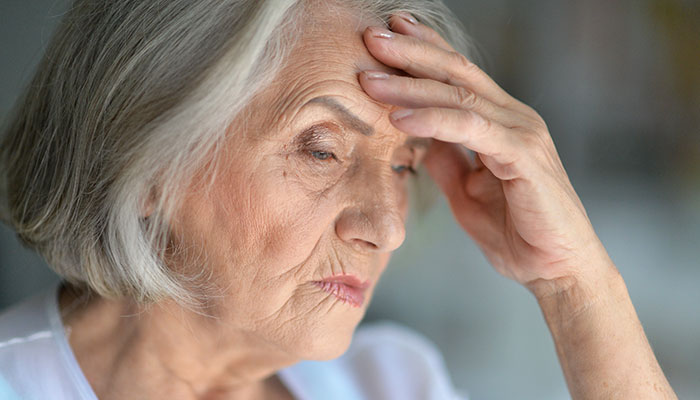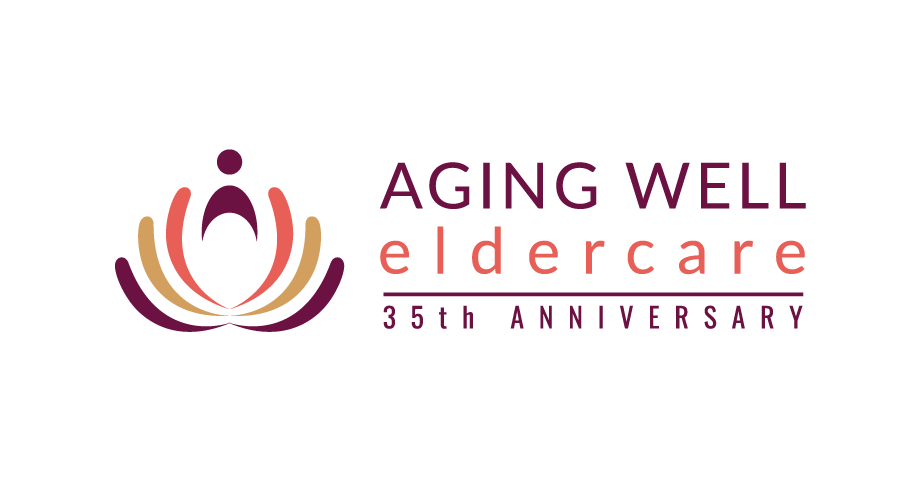Learn more at AgingWellMetroDC.com
Is your loved one depressed?
 More than 6 million adults over 65 experience depression. And sadly, only 10% get treatment. Many people, including doctors, think the signs of depression are related to something else (medications or a chronic condition). Some erroneously think that depression just comes with age and needs to be tolerated. Not so! With treatment, life can become much better.
More than 6 million adults over 65 experience depression. And sadly, only 10% get treatment. Many people, including doctors, think the signs of depression are related to something else (medications or a chronic condition). Some erroneously think that depression just comes with age and needs to be tolerated. Not so! With treatment, life can become much better.
We all get the blues now and then. But depression is different. It is more than sadness and a passing mood. Depression is actually a biochemical imbalance in the brain. It’s not something you can just “snap out of.” It requires treatment.
Who is most at risk?
People who are isolated and lonely. Also, those who have experienced a major life change (loss of a spouse, a serious diagnosis). People who have health limitations are more likely to get depressed, as are people who are hospitalized. So are people who are under a lot of stress (family caregivers!).
In general, there are nine symptoms of depression.
If a person experiences four or more of these symptoms every day, for most of the day, over a two-week period, medical professionals would call it “major depression”:
- Fatigue
- Trouble sleeping
- Confused or distracted thinking
- Grumpiness or irritability
- Loss of interest or pleasure in normal activities
- Slowed speech, slowed reactions, slowed movements
- A 5% change in weight (up or down)
- Feeling hopeless, worthless, or guilty
- Frequent thoughts of death, dying, or suicide
If this sounds like your loved one—or even yourself!—talk to the doctor and ask for an evaluation for depression. The person you care for does not need to suffer. Life can get better!
Return to topWhen depression goes untreated

Left untreated, depression in older adults can lead to other serious problems.
- Slow recovery from injury or illness
- Poor medication management, resulting in hospitalization
- Social isolation, leading to overuse of alcohol and increased risk of falls
- Dependence and the loss of ability to live independently
- Suicide (which occurs much more frequently in older adults)
And yet, many older adults are hesitant to talk about their symptoms with a doctor. There are several possible reasons.
- Stigma of depression. Some elders believe that becoming depressed is their “fault.” They feel it is the result of personal inadequacy. Your relative may not know that depression is an illness affecting six million older Americans. This information may help your loved one feel more comfortable asking for help.
- Fear of an incurable disease. Your loved one may believe that their fuzzy thinking or lack of energy is a sign of Alzheimer’s, cancer, or some other illness. After talking with the doctor, however, they may be relieved to learn that it is depression and is quite treatable. The doctor may even find that the symptoms are actually something as simple as side effects of a prescribed drug.
- Hope for improvement. Wishful thinking is another reason your relative may be stalling about an appointment. They may hope that the blues “will just go away.” In fact, depression needs treatment.
Approach the topic with sensitivity. But also keep in mind that it’s worth it to strongly encourage your loved one to talk with a medical professional or counselor. You don’t want to leave depression untreated.
Return to topTreating depression
If you suspect depression, the first step is to have your relative talk with a medical professional. The doctor can check for other health conditions. You want to get an exact diagnosis.
Studies show that 60% to 80% of older adults who receive appropriate treatment for depression do feel better.
Antidepressants are the most common approach.
- Costs are typically covered by Medicare.
- Today’s drugs have fewer side effects than before.
- It may take weeks to feel the full effect.
- It may take several tries to find the one that works best.
Many doctors prescribe counseling. Or counseling with antidepressants. Most counseling involves private sessions with a trained professional.
- Your family member may be taught more positive ways of thinking. Or how actions and activities affect mood.
- Sessions may focus on solving problems in daily life. Or on resolving difficult relationships.
Things you can do
- Encourage exercise. Regular physical activity boosts mental as well as physical health.
- Support social activities. Not always easy when a person is depressed. But spending time with family members is a start.
- Listen and get them talking. Don’t be afraid to ask if they are thinking of suicide. You won’t give them ideas. But it may help them open up and allow you the chance to urge them to consult with the doctor.
No matter the treatment chosen, make sure a trained professional stays involved. Ongoing monitoring of your loved one’s progress is essential.
Contact us at 301-593-5285
